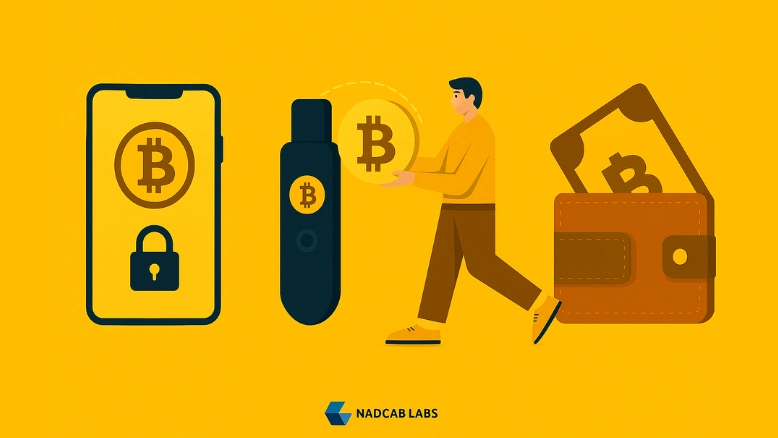
Market makers are crucial in keeping decentralized exchanges (DEXs) running smoothly. They help ensure there’s always someone ready to buy or sell assets, which keeps trading active and efficient. If you’re involved in creating or managing a DEX, understanding how to use market makers effectively can make a big difference. Here’s a simple guide on the best strategies for using a market maker on a DEX.
What is a Market Maker for DEX?
A market maker on a decentralized exchange (DEX) provides liquidity by placing buy and sell orders, ensuring smooth and efficient trading. They earn profit through the bid-ask spread and help maintain price stability and fast trade execution. Without market makers, DEXs would face low liquidity, slow transactions, and high price volatility, making it difficult for users to trade assets fairly. Market makers are crucial in keeping decentralized trading active, stable, and accessible for all participants.
DEX Software Services Help Market Makers
DEX Software Services are helpful tools for market makers on decentralized exchanges. These services include key features: Automated trading bots handle buy and sell orders based on set rules, so market makers don’t need to watch the market all the time. Advanced analytics give useful information about market trends and trading volumes, helping market makers make better decisions. Order matching engines quickly pair buy and sell orders, making trades happen faster and reducing delays, which helps keep prices stable.
Multi-exchange integration lets market makers trade on different platforms from one place, making it easier to manage trades. Customizable algorithms allow market makers to adjust their trading strategies to fit their needs. DEX market orders help market makers place trades directly on the exchange, ensuring they get the best prices.
In short, DEX Software Services—like automated trading bots, advanced analytics, quick order matching, multi-exchange support, customizable strategies, and DEX Market Orders—make trading easier and more efficient for market makers.
Examples of Market Maker Bots in DEX
Market maker bots are automated tools used on decentralized exchanges (DEXs) to manage trading activities and provide liquidity. Here are some common examples of these bots:
-
Uniswap V3 Bots
On Uniswap V3, market maker bots can utilize concentrated liquidity, adjusting their positions within specific price ranges to maximize returns. These bots are programmed to provide liquidity and earn fees by strategically placing trades based on current market conditions.
-
Balancer Bots
Balancer bots operate on the Balancer DEX, which allows for multi-asset liquidity pools. These bots manage liquidity across various assets and rebalance portfolios automatically to maintain desired ratios, optimizing returns and minimizing risk.
-
SushiSwap Bots
SushiSwap, a popular decentralized exchange, uses market maker bots to facilitate trades and provide liquidity. These bots help in maintaining liquidity across various trading pairs, ensuring smooth transactions and efficient order execution.
-
PancakeSwap Bots
On PancakeSwap, market maker bots help manage liquidity pools on the binance smart chain. They automate trading strategies to ensure there is always sufficient liquidity for swaps and trades, contributing to the overall efficiency of the exchange.
-
Kyber Network Bots
Kyber Network integrates market maker bots that aggregate liquidity from various sources. These bots optimize trade execution by finding the best rates and ensuring that liquidity is available for users across different tokens.
-
1Inch Bots
1Inch provides liquidity aggregation across multiple DEXs. Market maker bots on 1Inch work to ensure that trades are executed at the best possible rates by routing orders through various exchanges and optimizing liquidity.
-
Curve Finance Bots
Curve Finance uses market maker bots to provide liquidity in stablecoin pools. These bots help maintain low slippage and efficient swaps between stablecoins, ensuring that users can trade with minimal price impact.
The Future of AMMs
The future of Automated Market Makers (AMMs) is promising, especially for DEX development. Multi-chain AMMs will boost cross-chain trading and liquidity access. Smarter algorithms will reduce slippage and adjust fees dynamically. Deeper integration with DeFi protocols will enable seamless services like lending and yield farming. Expect fairer pricing models, improved security, and better scalability. Enhanced user interfaces and trade tools will make AMMs more efficient, secure, and user-friendly, driving the next evolution in decentralized exchange technology.
Top Tips for Market Makers on DEXs
-
Focus on High-Volume Trading Pairs
Focus on providing liquidity for high-volume trading pairs. These pairs usually have more trading activity, which can lead to higher trading fees and rewards. By being a market maker in active pairs, you increase your chances of earning more from the transaction fees charged on trades.
-
Leverage AMM Strategies
Automated Market Makers (AMMs) are algorithms used by DEXs to facilitate trading. Leverage AMM strategies, such as constant product formulas, to ensure that liquidity is always available. Understanding how different AMM models work can help you optimize your liquidity provision and maximize returns.
-
Spread Risk Across Different Pools
Don’t put all your liquidity into a single pool. Diversify across different pools and pairs to spread risk and take advantage of various trading opportunities. Diversification helps reduce the impact of impermanent loss and can increase your overall returns.
-
Regularly Monitor Performance
Regularly monitor the performance of your liquidity positions. Keep an eye on trading volumes, price fluctuations, and liquidity pool metrics. Adjust your liquidity provisioning based on market conditions to ensure you are not exposed to unnecessary risks or missing out on potential profits.
-
Participate in Incentive Programs
Many DEXs offer incentives, such as liquidity mining rewards or governance tokens, for market makers. Participate in these incentive programs to earn additional rewards beyond the standard trading fees. Be sure to understand the terms and conditions of these incentives to maximize your benefits.
-
Mitigate Impermanent Loss
Understand the concept of impermanent loss, which occurs when the value of assets in your liquidity pool changes compared to holding them separately. To mitigate this risk, use strategies like providing liquidity in stablecoin pairs or monitoring the price volatility of the assets you’re paired with.
Why Choose Nadcab Labs for DEX Market Makers?
Nadcab Labs is a great choice for DEX market makers because they offer several key advantages. They provide customized solutions tailored to meet individual needs, ensuring that market-making strategies are optimized for each trader. Their advanced technology includes automated trading bots and fast order matching engines, which help maintain liquidity and execute trades efficiently.
Nadcab Labs also offers detailed analytics to help market makers understand market trends and make smart decisions. Their platform supports multi-exchange integration, allowing traders to operate across different exchanges from one place, which simplifies management and expands opportunities. Additionally, Nadcab Labs provides flexible, customizable algorithms and excellent customer support to address any issues and keep everything running smoothly. These features make Nadcab Labs a top choice for effective and efficient market-making on decentralized exchanges.






